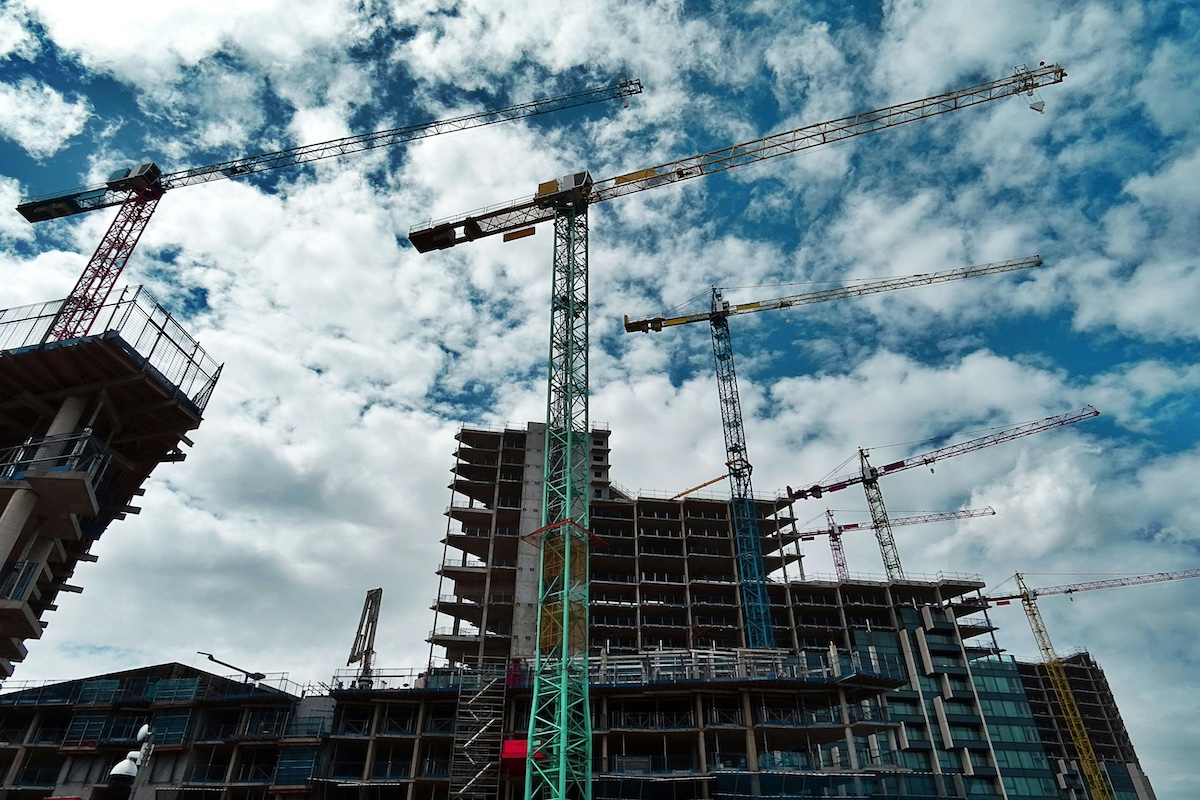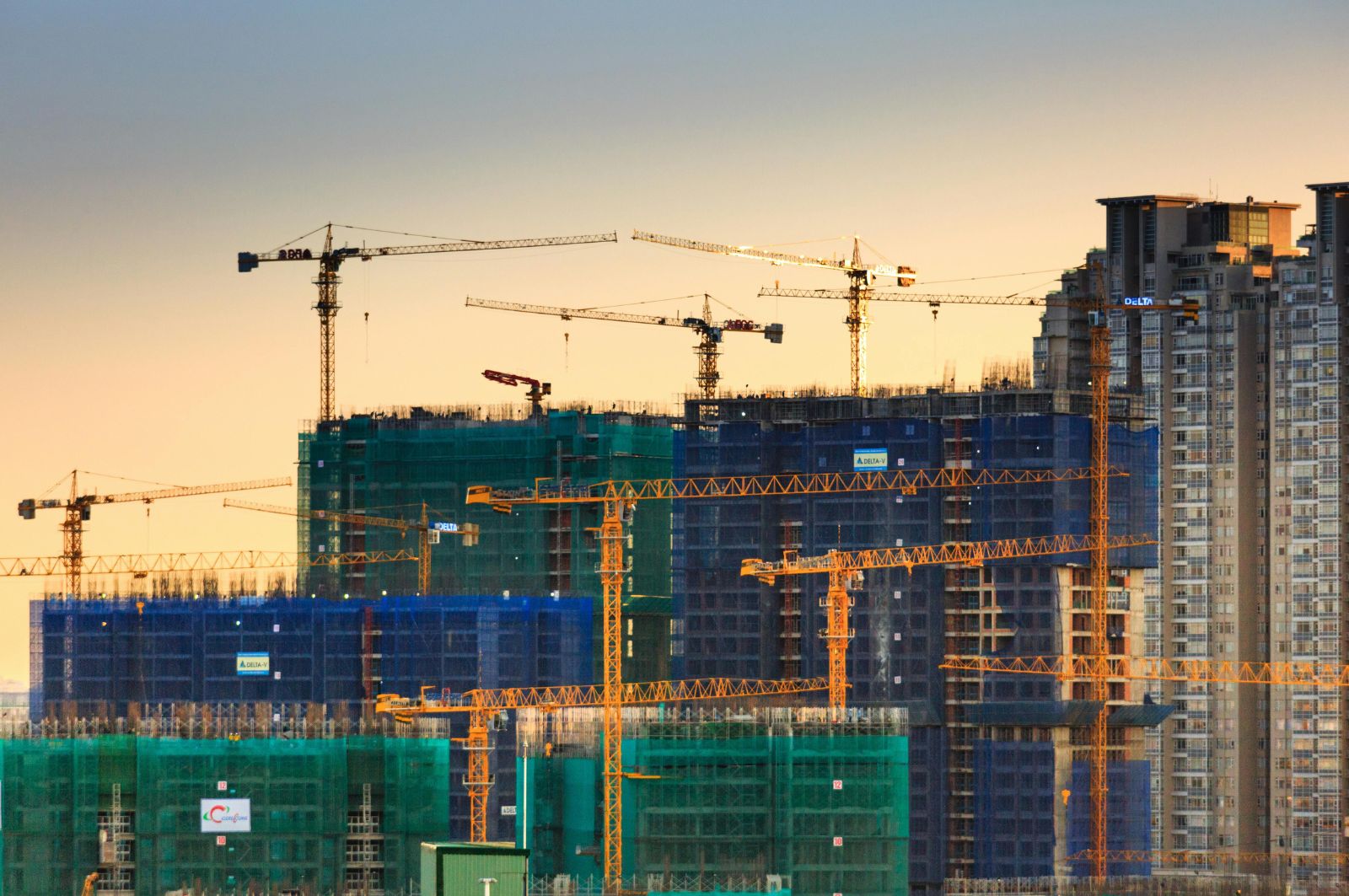Commercial construction is a cornerstone of our communities and economies, involving the creation of structures designed for business use, such as offices, retail stores, and industrial facilities. This guide provides an in-depth look at commercial construction, covering everything from key players in the industry to common challenges.
Understanding Commercial Construction
Definition of Commercial Construction
Commercial construction involves building and developing structures intended for business purposes. Unlike residential construction, which focuses on homes, commercial construction encompasses a wide range of buildings, including office spaces, retail stores, warehouses, and hospitals. These projects are typically larger in scale and complexity, requiring specialized knowledge.
Importance of Commercial Construction
The significance of commercial construction lies in its impact on economic growth and community development. These projects create spaces for businesses to operate, contributing to job creation and facilitating commerce. Commercial buildings provide the necessary infrastructure for various industries to thrive.
Key Players in Commercial Construction
Developers
Developers are the driving force behind commercial projects, identifying opportunities, securing financing, and assembling resources to turn ideas into reality. They collaborate with investors to ensure the project aligns with financial goals and market demands.
Architects and Engineers
Architects and engineers are crucial in designing commercial buildings. Architects focus on the building’s aesthetics and functionality, while engineers ensure its structural integrity and safety. Their collaboration is essential for creating a successful project.
General Contractors
General contractors manage the construction process, overseeing day-to-day activities on-site to ensure the project stays on schedule and within budget. They coordinate with subcontractors, manage materials, and enforce safety standards.
Subcontractors
Subcontractors are specialized professionals responsible for specific tasks within the project, such as electrical work, plumbing, and carpentry. Each subcontractor’s expertise is vital to the successful completion of the building.
Related Reading – What is CMU in Construction?
The Commercial Construction Process
Pre-Construction Phase
The pre-construction phase involves extensive planning and preparation, including site selection, feasibility studies, budgeting, and obtaining permits. During this phase, developers work with architects and engineers to finalize designs and ensure the project’s viability.
Design and Planning
This phase focuses on creating detailed blueprints and plans. Architects and engineers collaborate to design the building, considering structural integrity, safety, and environmental impact. Planning also includes scheduling, cost estimation, and material selection.

Bidding and Contracting
After the design is completed, the project goes out for bidding. Contractors submit proposals, and the developer selects the one that best fits the project’s needs and budget. Contracts are then negotiated and finalized, outlining the scope of work, timelines, and payment terms.
Construction Phase
The construction phase is when the actual building takes place. It begins with site preparation, followed by the construction of the foundation and the building itself. Project managers oversee the work, ensuring that it adheres to the plans and meets quality standards. Safety is a top priority during this phase.
Post-Construction Phase
Once construction is completed, the building undergoes final inspections to ensure compliance with regulations. After approval, the building is handed over to the client. This phase also includes addressing any issues, providing warranties, and ensuring the building is ready for occupancy.
Types of Commercial Construction Projects
Office Buildings
Office buildings range from small, single-story structures to large skyscrapers, designed to house various businesses and provide functional workspaces.
Retail Buildings
Retail construction includes shopping centers, malls, and standalone stores, designed to attract customers and enhance the shopping experience.
Industrial Buildings
Industrial buildings, such as warehouses and manufacturing plants, are constructed to support production, storage, and distribution activities. These structures are large and designed to accommodate heavy equipment and machinery.
Institutional Buildings
Institutional construction involves projects like schools, hospitals, and government buildings, which require specialized knowledge to meet the specific needs of the institutions they serve.
Mixed-Use Developments
Mixed-use developments combine residential, commercial, and recreational spaces in one project, offering convenience and fostering community interaction.
Related Guide – What is Masonry Sand?
Key Trends in Commercial Construction
Sustainability and Green Building
Sustainable construction practices are increasingly common in commercial projects, focusing on eco-friendly materials, energy-efficient designs, and minimizing environmental impact.
Technological Advancements
Technology is transforming the commercial construction industry. Innovations such as Building Information Modeling (BIM), drones, and 3D printing are improving efficiency, accuracy, and safety on construction sites.
Modular Construction
Modular construction involves building sections of a project off-site and assembling them on-site. This method is faster, reduces waste, and can lower costs, making it an attractive option for many commercial projects.
Urbanization and Smart Cities
As urban areas grow, the demand for smart buildings and cities is increasing. These projects integrate technology to improve the efficiency and sustainability of urban infrastructure.
Challenges in Commercial Construction
Budgeting and Cost Overruns
Managing costs is a significant challenge in commercial construction. Unforeseen expenses, changes in material prices, and project delays can lead to budget overruns. Effective budgeting and contingency planning are essential to keep projects on track.
Regulatory Compliance
Commercial construction projects must adhere to a complex web of building codes, zoning laws, and safety regulations. Navigating these requirements is challenging but necessary to avoid legal issues and ensure the project’s success.
Labor Shortages
The construction industry often faces labor shortages, particularly in skilled trades. This can lead to delays and increased costs as contractors compete for a limited pool of workers.
Environmental Impact
Minimizing the environmental impact of construction is a growing concern. Projects must consider waste management, energy use, and the building’s long-term sustainability.
FAQs About Commercial Construction
What is an example of a commercial project?
An example of a commercial project is the construction of a shopping mall. This involves designing and building retail spaces, food courts, parking areas, and other amenities to create a comprehensive shopping experience.
What does commercial building mean in construction?
In construction, a commercial building refers to any structure used for business purposes, such as offices, retail stores, or warehouses. These buildings are designed to facilitate various business activities and are often larger and more complex than residential structures.
Conclusion
At Dixon Inc., our commitment to excellence in commercial construction has been the foundation of our success for over 70 years. We understand the complexities of commercial projects and are dedicated to delivering top-quality results on time and within budget. Whether you’re planning an office building, a retail center, or an industrial facility, our experienced team is here to turn your vision into reality.
Choosing Dixon Inc. means partnering with a company that values integrity, customer satisfaction, and innovative solutions. Our team of skilled professionals is equipped to handle every aspect of your project, ensuring that it meets the highest standards of quality and safety. Trust Dixon Inc. will guide your commercial construction project from concept to completion.
Ready to start your next project? Contact Dixon Inc. today to learn how we can bring your vision to life. Visit us at Dixon Inc.





